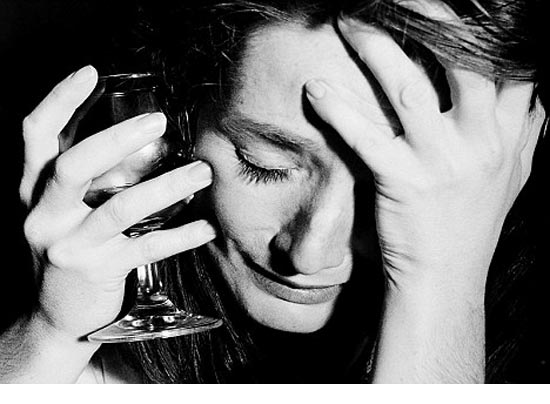New report “sheds light on darkness”
January 25, 2011

Increasing numbers of Los Angeles County residents are finding themselves in a blue state. And it has nothing to do with political affiliation.
A new report from the Department of Public Health shows that 13.6% of adults in the county report having been diagnosed with depression at some time in their lives—an increase of nearly 50% between 1999 and 2007. The rates went up for all adults, but the increases were most pronounced for those from 25-29 and 60-64. The condition continues to affect more women than men (16.6% compared to 10.3%) and is more common among whites and African Americans (17% and 16.6% respectively) than Latinos (12.4%) and Asians/Pacific Islanders (6%.)
The report said that those who have been diagnosed with depression are likelier than others to smoke and drink heavily and to get less exercise. It found that more than 35% of those who said they’d been diagnosed with depression also had chronic health conditions such as diabetes, heart disease and obesity. And it reported that many in the county said they’d been unable to afford mental health care or counseling when they needed it.
Some of the increase in reported depression can be attributed to greater public awareness of depression and better diagnosis of the problem, as well as to a possible decrease in stigma attached to the condition, said Dr. Susie Baldwin, chief of the department’s Health Assessment Unit, which produced the report.
Even so, depression represents a huge personal and social challenge.
“From any perspective, depression takes a large toll in terms of disease burden, and is the most common mental health problem. We need to ensure that those suffering from depression get diagnosed early and receive timely care,” Dr. Jonathan E. Fielding, the county’s Director of Public Health, said in a press release.
“The takeaway is that this is very common and not something that is the fault of the individual,” Baldwin added. She noted there are many ways to help—from family members being patient with a depressed loved one to public policy-makers providing funding for mental health programs. The report also lists several recommendations for things employers and companies can do to help with depression in their workforce.
The report emphasizes that the best way to fight depression is to get help from a mental health professional. It said that free and low-cost help is available and urged anyone who needs it to call the county Department of Mental Health hotline, (800) 854-7771. Other resources listed include the Didi Hirsch Mental Health Services agency, which has a 24-hour suicide crisis line (877-727-4747), along with community outreach programs and other assistance available.
The report draws on information gathered as part of the L.A. County Health Survey, conducted every three years from thousands of randomly-selected telephone respondents. Because it does not include the worst years of the economic recession, it does not indicate whether increasing financial stresses, including job losses and home foreclosures, are pushing depression rates even higher in Los Angeles County.
Those factors will be examined in the 2010 survey, with initial results not expected until early 2012. “It’s going to be interesting when we get the new data,” Baldwin said. The next report also will indicate how many people are currently feeling depressed—not just whether they’ve ever been diagnosed in the past.
Posted 1/25/11












 405 bridge work causes a stink
405 bridge work causes a stink
